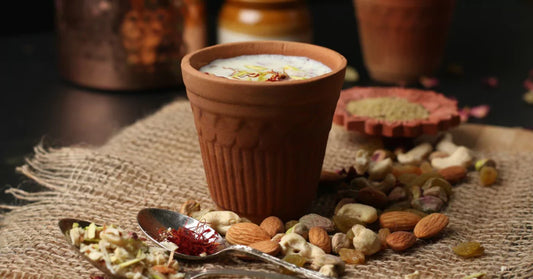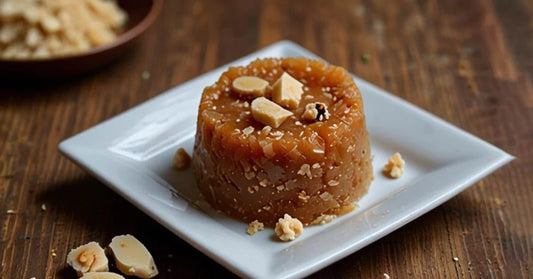Dried prunes, also known as dried plums, are not just a delicious snack but also a powerhouse of nutrients. In this blog post, we'll explore the various health benefits of dried prunes and how you can incorporate them into your daily diet.
What are the main health benefits of eating dried prunes?
Summary: Dried prunes offer numerous health benefits, including improved digestion, bone health support, heart health promotion, and potential cancer risk reduction. They are rich in fiber, vitamins, and antioxidants.
The main health benefits of eating dried prunes include:
- Improved digestion: High fiber content aids in regular bowel movements and prevents constipation.
- Bone health support: Rich in vitamin K, potassium, and boron, which contribute to bone strength and density.
- Heart health promotion: Potassium content helps regulate blood pressure.
- Antioxidant properties: Contain polyphenols that may help reduce inflammation and oxidative stress.
- Blood sugar regulation: Low glycemic index helps maintain stable blood sugar levels.
- Weight management: Fiber content promotes feelings of fullness and may aid in weight control.
-
Potential cancer risk reduction: Antioxidants may help protect against certain types of cancer.
How many dried prunes should I eat per day to see health benefits?
Summary: Consuming 5-6 dried prunes (about 50g) per day is generally recommended to experience health benefits. This amount provides a good balance of nutrients without excessive calorie intake.
To experience the health benefits of dried prunes, consider the following guidelines:
- General recommendation: 5-6 dried prunes (about 50g) per day.
- For bone health: Some studies suggest 100g (10-12 prunes) daily for optimal bone health benefits.
- For digestive health: Start with 3-4 prunes and gradually increase to avoid digestive discomfort.
- For weight management: Limit intake to 30-50g per day as part of a balanced diet.
-
Individual needs may vary: Consult a healthcare professional for personalized advice.
Do dried prunes have any benefits for bone health?
Summary: Yes, dried prunes offer significant benefits for bone health. They are rich in nutrients that support bone density and strength, potentially reducing the risk of osteoporosis.
Dried prunes contribute to bone health in several ways:
- Rich in vitamin K: Essential for bone metabolism and calcium absorption.
- High in boron: Supports bone formation and maintenance.
- Contains potassium: Helps reduce calcium loss from bones.
- Provides copper: Necessary for collagen formation in bones.
- Antioxidant properties: May help reduce inflammation that can lead to bone loss.
- Research-backed: Studies show potential in preventing and reversing bone loss.
-
May be beneficial for postmenopausal women: Helps combat age-related bone density decline.
How do dried prunes compare nutritionally to fresh plums?
Summary: Dried prunes are more concentrated in nutrients and calories compared to fresh plums. They have higher fiber, vitamin, and mineral content but also more sugar and calories per serving.
| Nutrient (per 100g) | Dried Prunes | Fresh Plums |
|---|---|---|
| Calories | 240 | 46 |
| Fiber | 7.1g | 1.4g |
| Sugar | 38g | 9.9g |
| Vitamin K | 59.5µg | 6.4µg |
| Potassium | 732mg | 157mg |
Are there any side effects of eating too many dried prunes?
Summary: While generally safe, excessive consumption of dried prunes can lead to digestive issues, increased calorie intake, and potential interactions with certain medications.
Potential side effects of overconsumption include:
- Digestive discomfort: Bloating, gas, and diarrhea due to high fiber content.
- Increased calorie intake: May lead to weight gain if not accounted for in overall diet.
- Tooth decay risk: High sugar content can contribute to dental issues.
- Medication interactions: May interfere with blood thinners due to high vitamin K content.
- Elevated blood sugar: Despite low glycemic index, excessive intake can affect blood sugar levels.
- Potential allergic reactions: Rare, but possible in sensitive individuals.
-
Oxalate content: May contribute to kidney stone formation in susceptible individuals.
Can diabetics safely consume dried prunes?
Summary: Diabetics can consume dried prunes in moderation. Their low glycemic index and high fiber content make them a better choice compared to many other dried fruits.
Guidelines for diabetics consuming dried prunes:
- Moderate consumption: Limit to 2-3 prunes per serving.
- Monitor blood sugar: Check levels after consumption to understand individual response.
- Pair with protein: Combine with nuts or cheese to further slow sugar absorption.
- Account for carbohydrates: Include in daily carb count for balanced meal planning.
- Choose unsweetened varieties: Avoid prunes with added sugars.
- Consider timing: Best consumed as part of a balanced meal rather than alone.
- Consult a healthcare professional: For personalized advice on incorporating dried prunes into a diabetic diet.
How can I incorporate dried prunes into my daily diet?
Summary: Dried prunes are versatile and can be easily incorporated into various meals and snacks. They can be eaten alone, added to cereals, baked goods, or used in savory dishes.
Creative ways to include dried prunes in your diet:
- As a snack: Eat them plain or combine with nuts for a nutrient-rich snack.
- In breakfast: Add chopped prunes to oatmeal, yogurt, or morning smoothies.
- Baking: Incorporate into muffins, cookies, or energy bars for natural sweetness.
- Salads: Chop and add to green salads or grain-based salads for extra flavor and texture.
- Savory dishes: Use in stews, tagines, or as a complement to roasted meats.
- Trail mix: Create a custom mix with prunes, nuts, and seeds for on-the-go snacking.
-
Puree: Blend into a spread for toast or use as a natural sweetener in recipes.
Conclusion
Dried prunes are a nutritional powerhouse, offering a wide range of health benefits from improved digestion to supporting bone health. While they are generally safe and beneficial for most people, it's important to consume them in moderation, especially for those with specific health conditions like diabetes. By incorporating dried prunes into your daily diet through various creative methods, you can enjoy their sweet taste while reaping their numerous health advantages. As with any dietary change, it's always wise to consult with a healthcare professional, particularly if you have existing health concerns. Embrace the goodness of dried prunes and take a delicious step towards better health with MevaBite!














